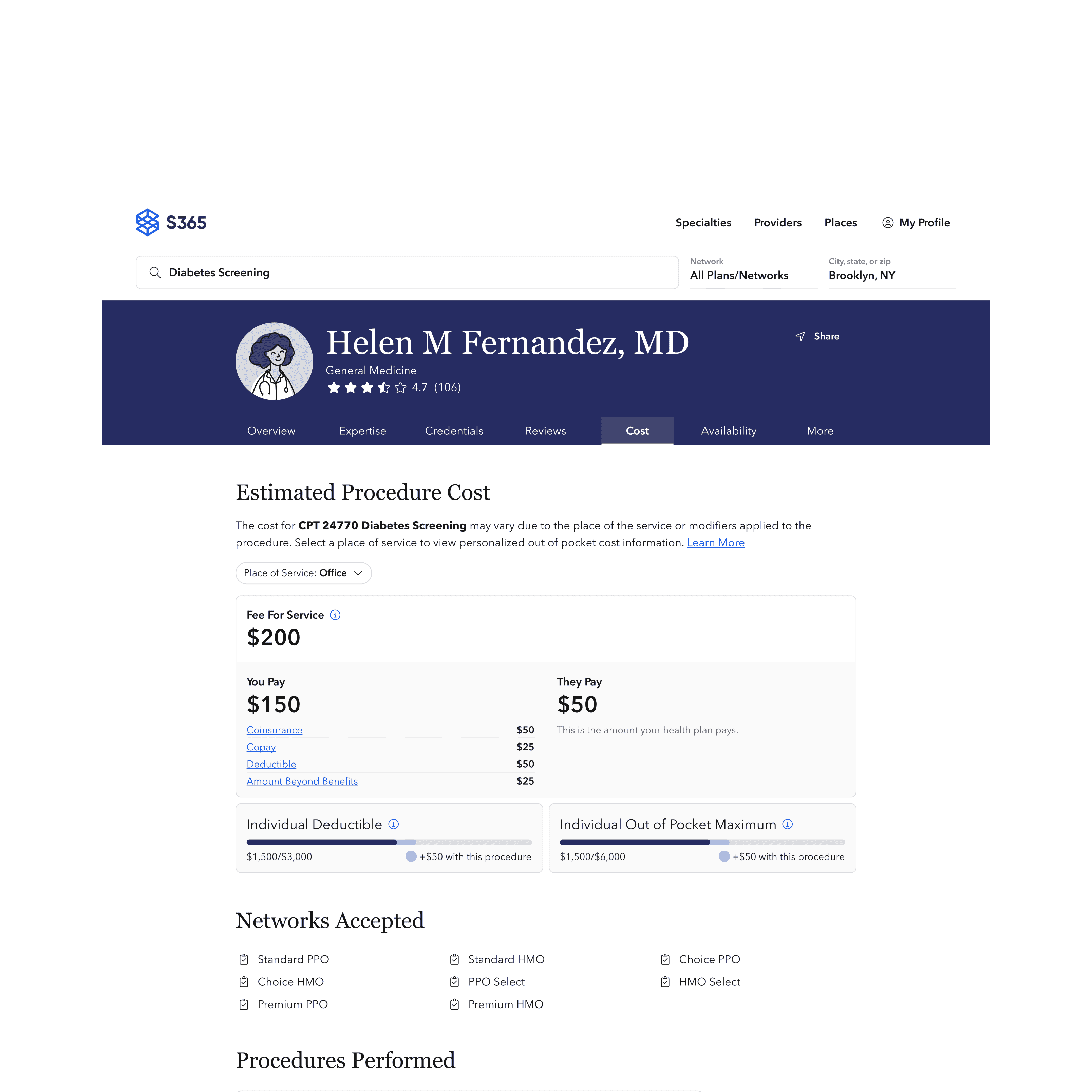/ Company
Zelis
/ Role
UX Designer
/ Date
2023-2024
medical
Price
competition
[1]
/ About the project
New legislation required healthcare providers and insurers to publish their rates. We built a product that drives market competition, with the ultimate goal of lowering the cost of care for patients.

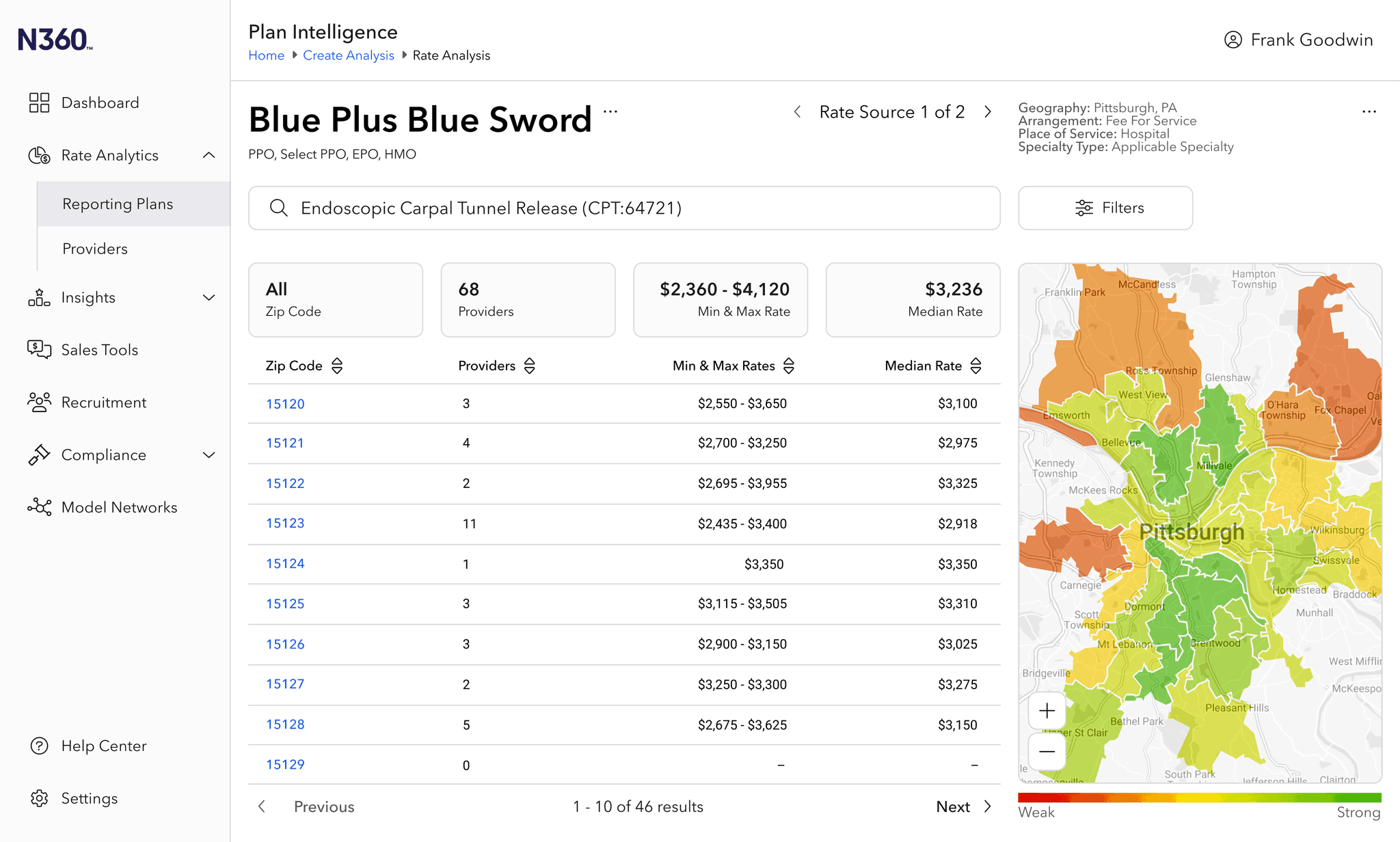
/ Pricing Leverage
There's a lack of competitive medical pricing leading to excessive patient expenses, which can be attributed to –
[01]
Opaque pricing structures
[02]
Complex billing processes
[03]
Market consolidation
[04]
Negotiation power imbalances
[05]
Limited price transparency

/ Before
Insures want more money,
So they increase prices.

Users are financially uninformed,
So they’re forced to pay anything.
/ After
Users can choose affordable care,
So they steer pricing by demand.

Insures need to retain members,
So they’re forced to negotiate competitively.
/ Foundation
The Network360 tool existed to enable health insurance administrators to see providers in their organizations' networks.
This tool served as the foundation to inject the new pricing data into existing provider profiles and enabled the capability to display competitor pricing insights.
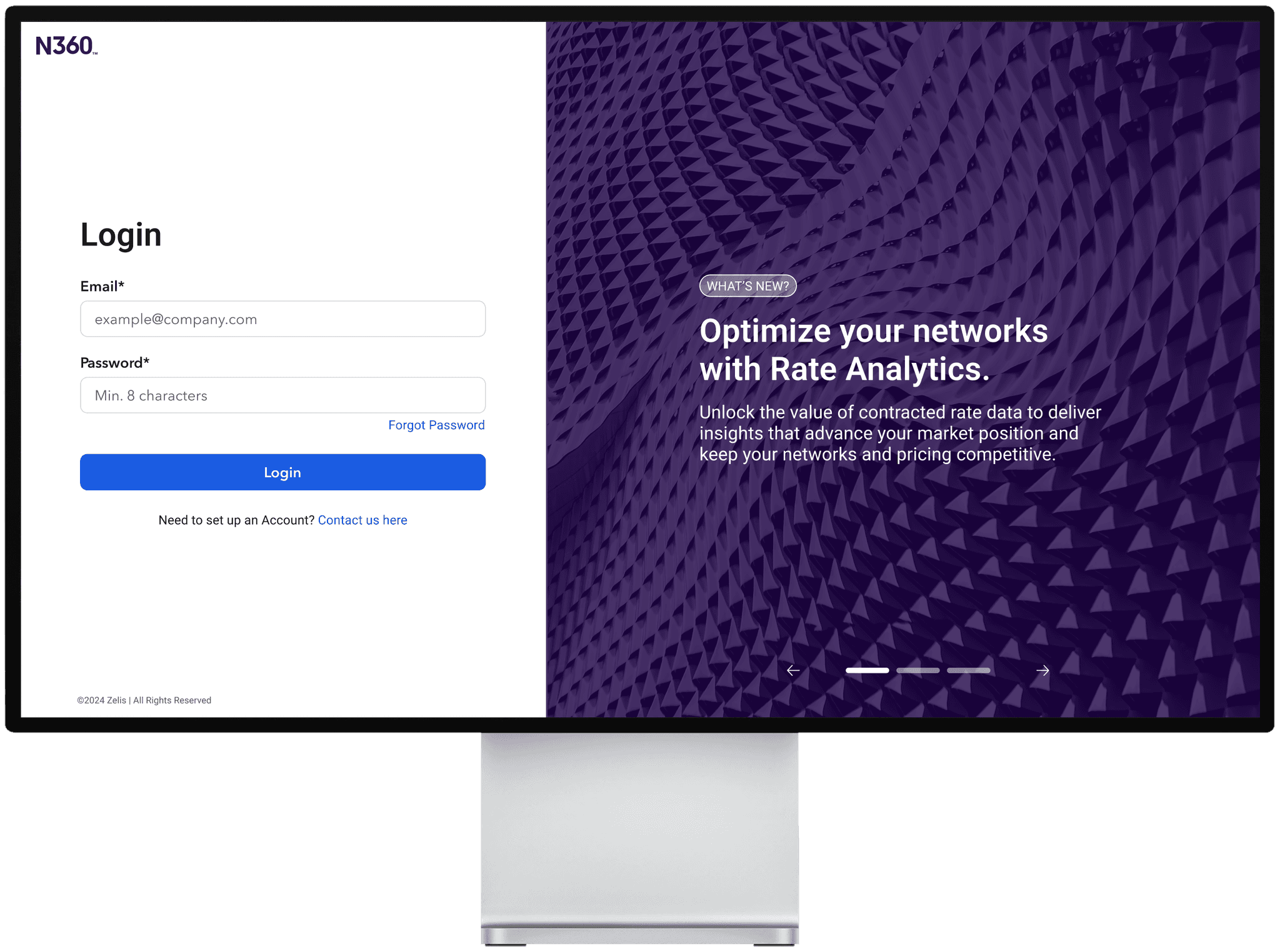
/ Data Isolation

Network
segmentation

Provider
types

Contracted
services

Price distribution
and deviation

Geographic
network strength

Pricing
Patterns
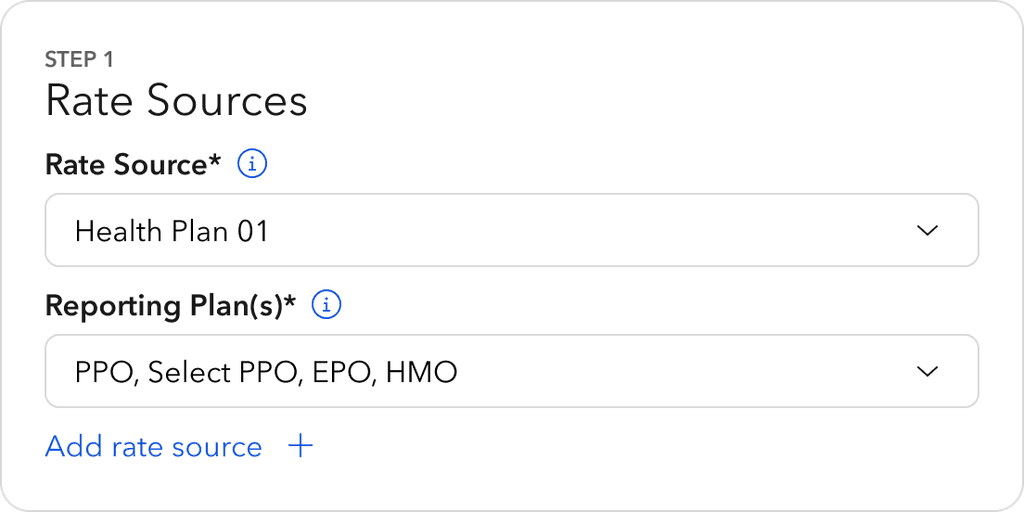
Speaking directly with our clients, we uncovered how users navigate rate negotiations and market insights to inform the granularity of analysis parameters.
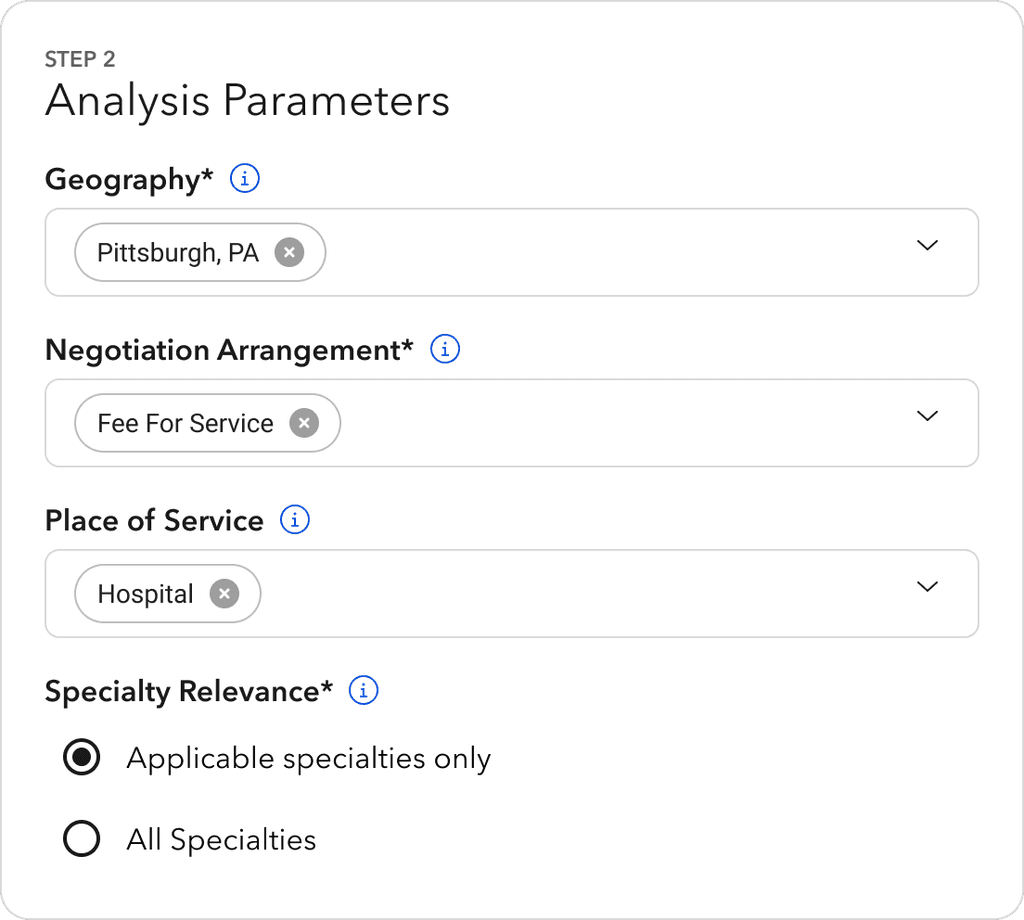

Geographic segmentation displays rich insights into the strength of a given provider network and portrays where competitor populations are being served.
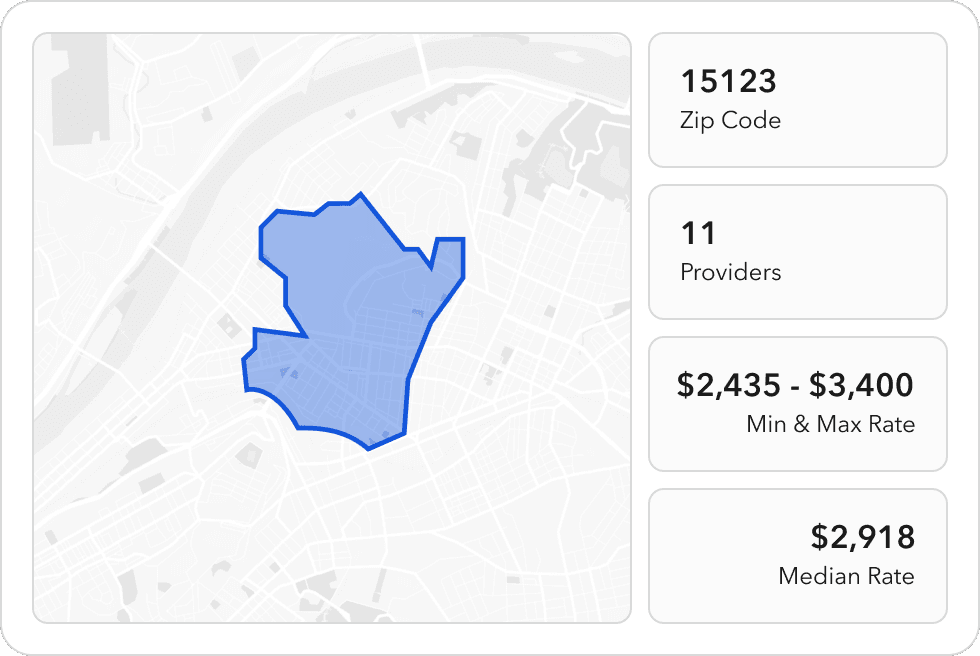
/ Data Navigation
When looking for rate information, a network administrator may be looking for specific details or network patterns. Our user testing informed top-down (network first) and bottom-up (provider first) methods of navigating rate information.
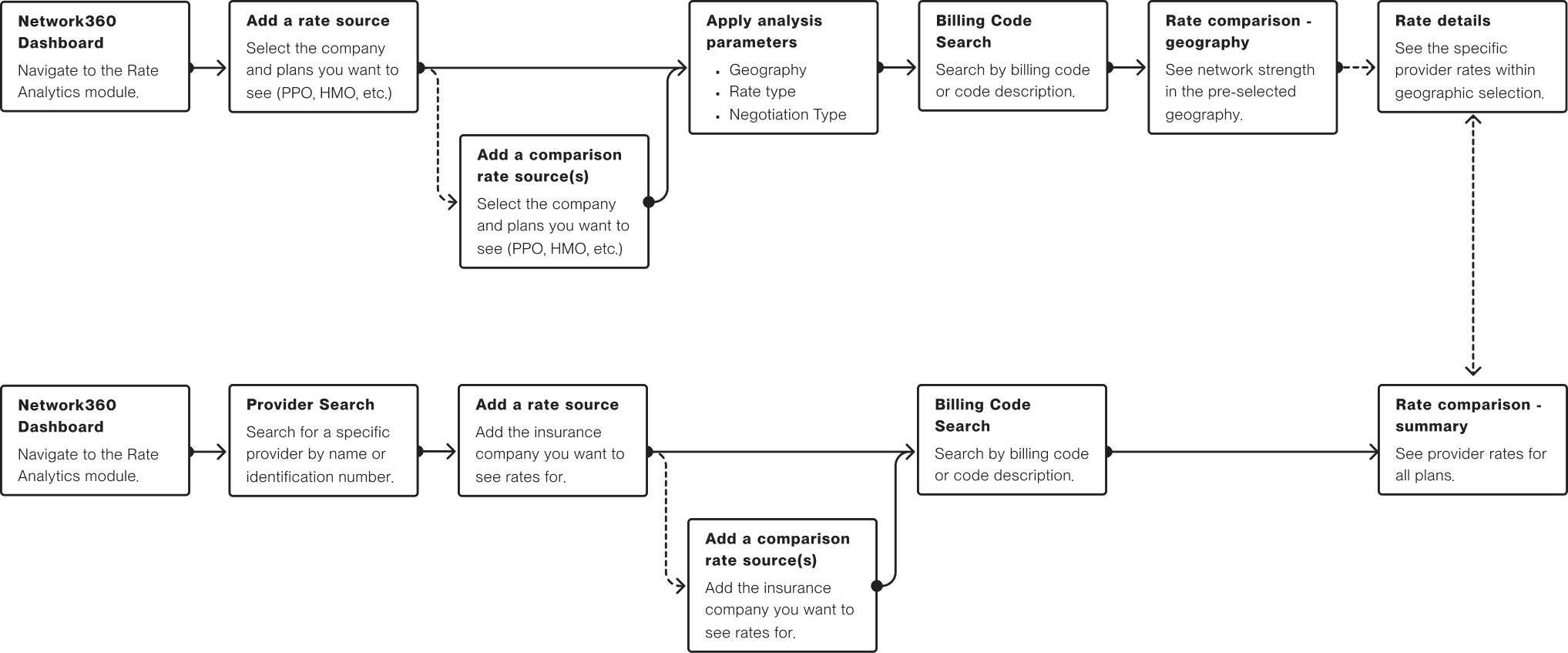

Named "Rate Analytics", the new module pulls from our cross-product interface design system to deliver a data analysis tool with rich data visualization and enhanced segmentation.
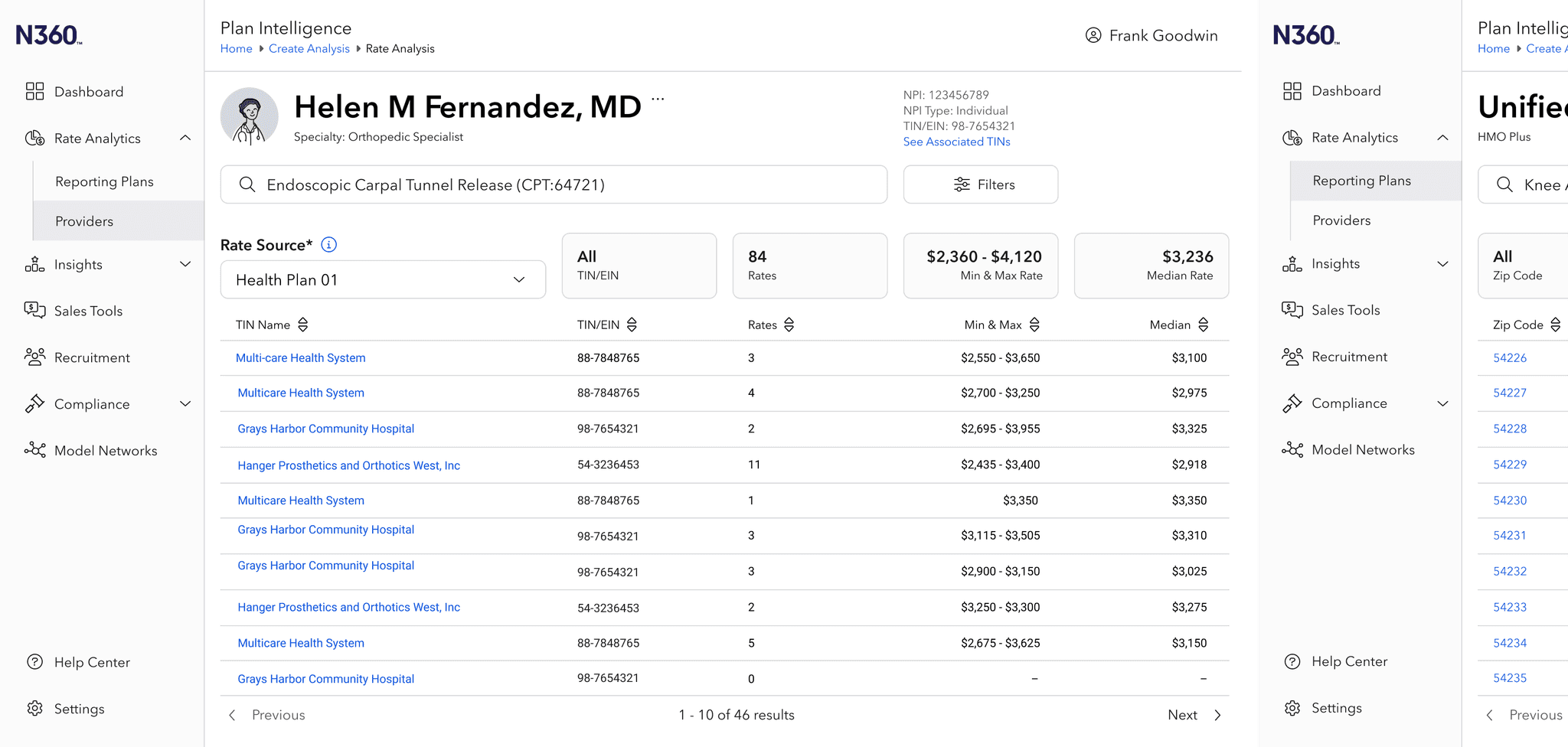
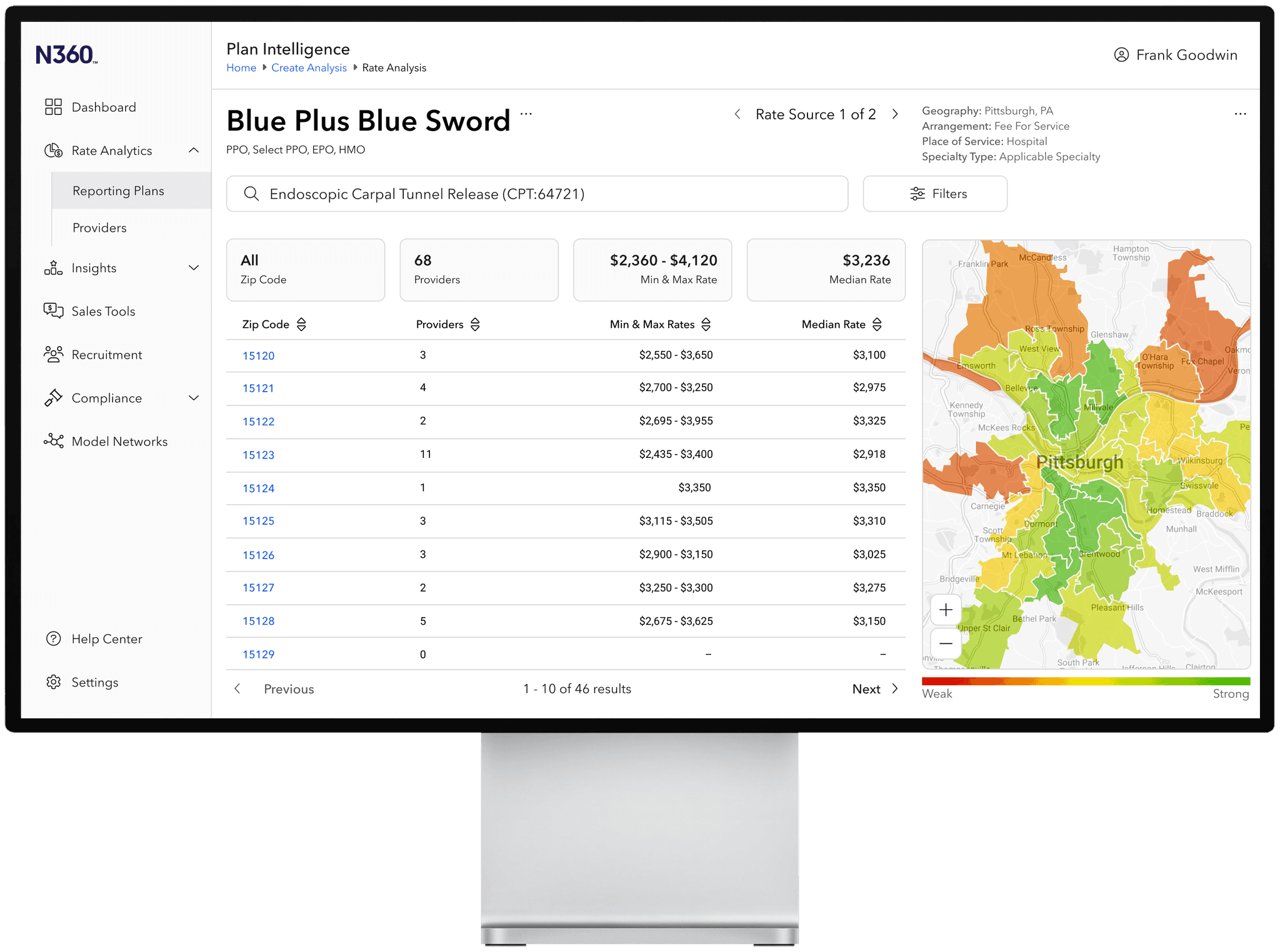
/ Outcome
This project initiated a formalization of product and design practices for this product that historically lacked investment. This included an interface migration to the organization design system, product analytics, and continuous product improvement, ultimately leading to improved client satisfaction and retention.
/ Reflection
Medical rate data is unstandardized, infrequently updated, and often inaccurate, which deteriorates the effectiveness of this tool. Until the Transparency in Coverage law is enforced, insurers will continue to delay providing satisfactory data.
We're actively exploring ways to grade the data quality in an attempt to encourage better data hygiene.

